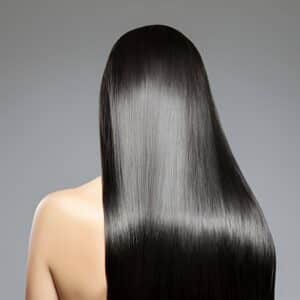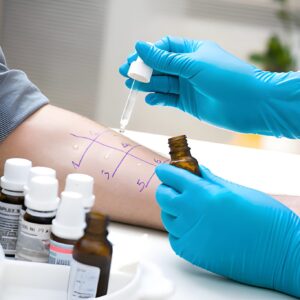SPF Laboratory Test In Vitro – Sun Protection Factor
$533.43
Ensure your sunscreen products meet international standards with our In Vitro SPF Testing service. Conducted under controlled laboratory conditions, the in vivo SPF testing delivers accurate, reproducible results while complying with global regulatory guidelines.
Our testing service provides:
-
SPF Value Determination using artificial UV radiation and spectrophotometric analysis
-
Full laboratory report and data interpretation by qualified scientists
This method is ideal for both formulation screening and regulatory dossier submission. Trusted by brands across the cosmetic and dermatological industries, our in vitro SPF testing ensures your sun care products are both safe and effective—ready for market launch in the EU and beyond.
Turnaround Time: 10–15 business days
Sample Required: Minimum 100ml/gr of each formulation
Protect your consumers. Validate your claims. Choose certified lab testing that meets modern scientific and ethical standards.
What is the difference between In Vivo and In Vitro testing?
The terms in vivo and in vitro refer to two different types of testing environments used in scientific and regulatory testing, including SPF testing for sunscreens:
In Vitro Testing
Definition:
“In vitro” means “in glass” in Latin. It refers to tests performed outside a living organism, typically in a laboratory using equipment like test plates, UV spectrophotometers, and artificial substrates.
Key Characteristics:
- Conducted in a controlled lab setting
- Uses synthetic skin substrates or other materials
- No human or animal testing involved
Examples: Spectrophotometric SPF testing, UVAPF determination on PMMA plates
Advantages:
- Ethical and animal-free
- Often faster and less expensive
- Enables screening multiple formulations in early development
- Accepted for regulatory purposes
In Vivo Testing
Definition:
“In vivo” means “within the living” in Latin. It refers to tests performed on living organisms, usually human volunteers in the case of SPF testing.
Key Characteristics:
- Conducted on human subjects’ skin
- Involves application of product followed by UV exposure
- Measured by observing erythema (redness) caused by UVB
Advantages:
- Considered the gold standard for SPF validation in some countries
- Provides real-world results under actual skin conditions
- Possibilities to test multiple options: Water Resistance (WR), Very Water Resistance (WR), Ultra Water Resistance (UWR), Sweat Resistance (STR), Sand Resistance (STR)
| Feature | In Vitro | In Vivo |
|---|---|---|
| Location | Laboratory (outside the body) | On living human skin |
| Ethics | Cruelty-free, no human testing | Human exposure to UV radiation |
| Speed | Faster | Slower |
| Cost | Lower | Higher |
| Options | SPF validation | SPF validation, Water Resistance (WR), Very Water Resistance (WR), Ultra Water Resistance (UWR), Sweat Resistance (STR), Sand Resistance (STR) |
| Usage | Formulation screening, final confirmation | Regulatory validation, final confirmation |
| Common Methods | Colipa, UV spectrophotometry, ISO 24443 | MED/MPPD testing with volunteers, ISO 24444 |
Why is SPF testing important?
- Regulatory Compliance:
Most regions, including the EU, US, and Asia, require validated SPF claims for sun protection products. Without proper testing, products may face rejection or removal from the market. - Consumer Safety:
Incorrect SPF claims can lead to insufficient sun protection, increasing the risk of skin damage and related health issues. - Credibility and Trust:
Transparent and accurate SPF claims enhance brand reputation and consumer trust in your products. - Market Differentiation:
SPF testing ensures your product can compete effectively by offering proven protection, making it a preferred choice for safety-conscious consumers.
Our SPF laboratory testing services
We provide comprehensive SPF testing to help you substantiate your product claims and meet regulatory standards. Our services include:
1. SPF In Vivo Testing
- Conducted on human volunteers under strict ethical and safety protocols.
- Determines the actual SPF value of your product based on real-world application and sun exposure.
2. SPF In Vitro testing
- Suitable for initial evaluations or as a complement to in vivo testing.
- Provides a quick and cost-effective method to analyze UV protection.
3. Broad spectrum UV testing
- Measures protection against both UVA and UVB radiation to support “Broad Spectrum” claims.
4. Water resistance testing
- Evaluates product efficacy after exposure to water, ensuring accurate “water-resistant” or “very water-resistant” claims.
5. Compliance checks
- Verification of compliance with regional SPF labeling requirements, such as those outlined by the FDA (US), EU Cosmetics Regulation, or ISO standards.
Why choose us for SPF Testing?
- Accredited Facilities: We operate state-of-the-art laboratories accredited to conduct SPF testing in line with global standards.
- Expert Team: Our scientists specialize in sunscreen formulation and testing, ensuring precise and reliable results.
- Regulatory Expertise: We provide guidance on meeting specific requirements for various markets, reducing the risk of delays or non-compliance.
- End-to-End Support: From initial testing to claim validation and regulatory documentation, we support every stage of your product development.
How to get started
If your product requires SPF testing or verification, our team is ready to assist. Whether you’re formulating a new sunscreen or updating an existing product to meet international standards, our services are tailored to your needs.




